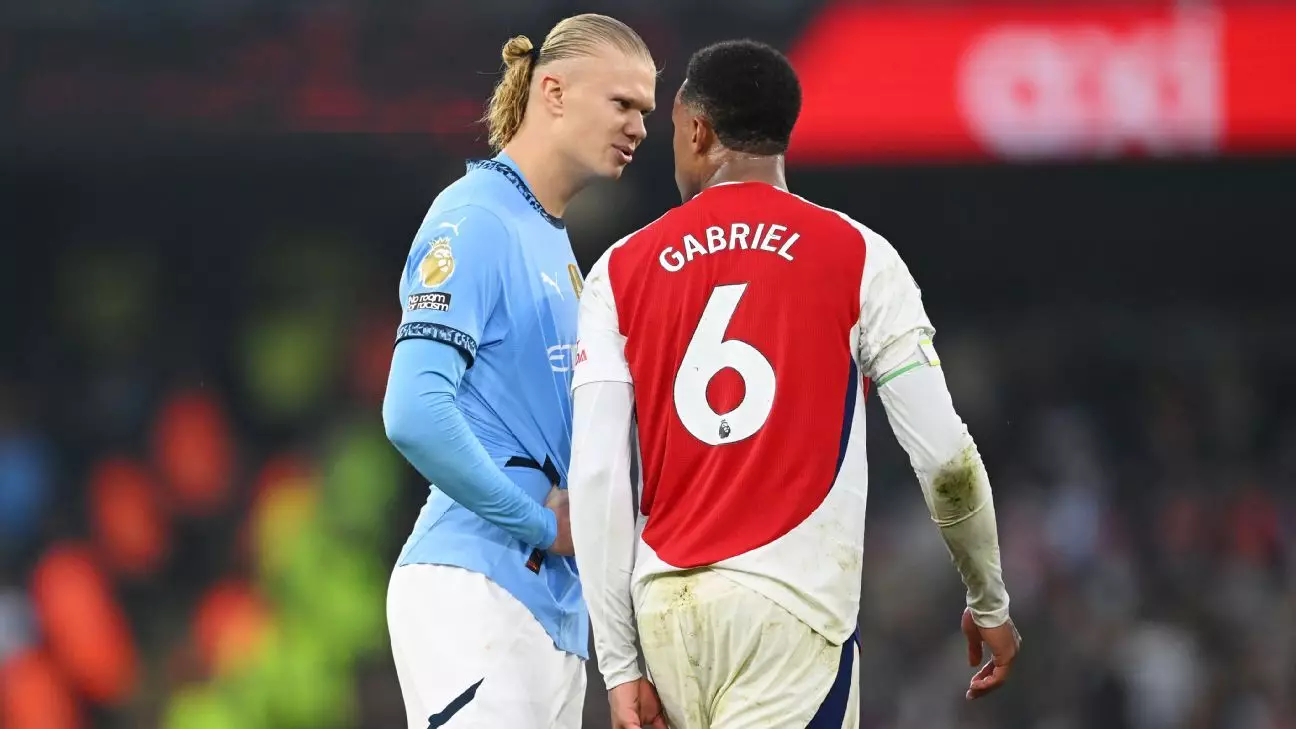In a thrilling encounter at the Etihad Stadium that saw Manchester City secure a late equalizer against Arsenal, the incident involving Erling Haaland throwing the ball at defender Gabriel Magalhães has stirred discussion amongst fans and pundits alike. The dramatic 2-2 draw, which showcased moments of brilliance and tension, ended on a sour note for some, particularly with Haaland’s actions post-goal. Despite this lapse in judgment, it was reported that there would be no disciplinary repercussions for the City forward, as the officials deemed the act as non-violent.
Referee Michael Oliver, who officiated the match, missed the momentary exchange, but video assistant referee John Brooks was monitoring. Upon review, Brooks concluded that Haaland’s throw did not fit the criteria for violent conduct, and theFA agreed that the situation was sufficiently dealt with during the match. This decision raises questions about consistency in officiating and what actions merit further scrutiny in modern football.
After the final whistle, the match atmosphere remained charged. Haaland became embroiled in verbal disputes, particularly with Arsenal manager Mikel Arteta and striker Gabriel Jesus. The Norwegian’s provocative comments directed at Arteta, telling him to “stay humble,” reflected the underlying tensions shaped by the match’s context. City players expressed frustration over what they perceived to be time-wasting tactics employed by Arsenal throughout the second half, particularly following the dismissal of Leandro Trossard, which left Arsenal with ten men.
Defender Manuel Akanji articulated this sentiment, echoing the frustrations of his teammates. He pointed out the pattern of players going to ground frequently, which he felt hindered the game’s flow. His remarks spotlight a recurring concern in football— the balance of gamesmanship and fair play. The discourse surrounding these interactions often showcases the varying perspectives teams hold regarding game management and referee oversight.
As Manchester City navigates the aftermath of this high-stakes draw, coach Pep Guardiola faces potential selection dilemmas due to player fitness issues and the lingering emotions from the Arsenal clash. With the Carabao Cup third round looming just 48 hours after facing the Gunners, Guardiola’s strategies will be tested as he considers how to manage squad fatigue and potential injuries, notably that of Kevin De Bruyne. This raises further questions about how pivotal players’ absences could affect City’s rhythm during a busy schedule.
The juxtaposition of these on-field tensions and off-field ramifications illustrates the complex ecosystem that characterizes modern football. Not only do results dictate table standings and personal accolades, but moments of passion—like Haaland’s actions—can quickly redefine narratives surrounding athletes and their motivations. As the season progresses, fans and analysts will be keenly watching how both the players’ behaviors and coaches’ decisions develop under pressure.

